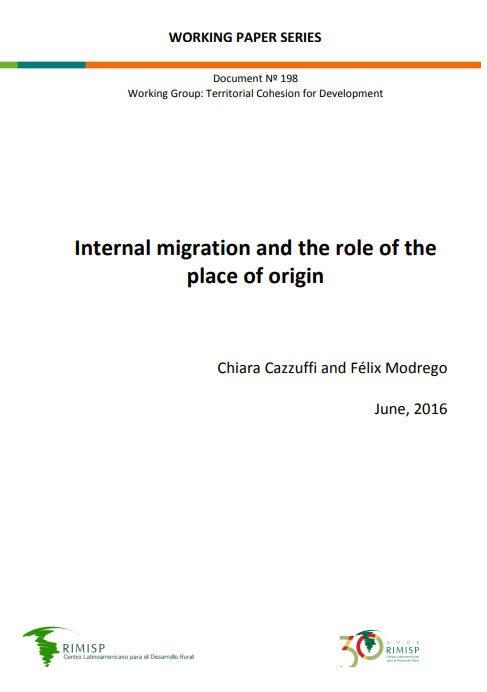Internal migration and the role of the place of origin
Autores
Abstract:
This paper investigates empirically the emigration decision of first-time internal migrants in Mexico for the period between 2002 and 2005, and focuses on the role of the characteristics of the place of origin in the decision to emigrate, controlling for initial individual characteristics of internal migrants. We use the rich data provided by the Mexican Family Life Survey and hierarchical modeling techniques. Consistent with previous empirical evidence, we find a pattern of positive selection of emigrants in terms of human capital (measured as level of schooling and with a cognitive abilities test score). We also find that place heterogeneity plays a very important role in migration decisions, explaining between 10 percent and 18 percent of the residual variation in individual migration propensity. We find that social problems in the community are a significant push factor, especially for people with lower levels of human capital. In contrast, availability of public transport discourages emigration, presumably by making commuting less costly. Lack of primary schools and a production structure concentrated on agriculture encourage nonindigenous people to leave their place of origin, while indigenous people are more likely to stay. To the extent that these place characteristics are correlated with lower incomes and standards of living, it suggests that poorer places might become “migration traps” for more vulnerable groups.
JEL Classifications: O15, R23
Keywords: Internal migration; territorial development; Mexico; multilevel models

Nuestras oficinas:

- Chile: Huelén 10. Providencia, Santiago, Región Metropolitana. (+56-2) 2236 4557 | Fax (+56-2) 2236 4558.

- Ecuador: Checoslovaquia E9-95 entre Suiza y Moscú. Edificio Eveliza Plaza. Planta Baja. Quito. (+593-2) 5150144.

- Colombia: Carrera 9 No 72-61 Oficina 303. Bogotá. (+57-1) 2073 850.
